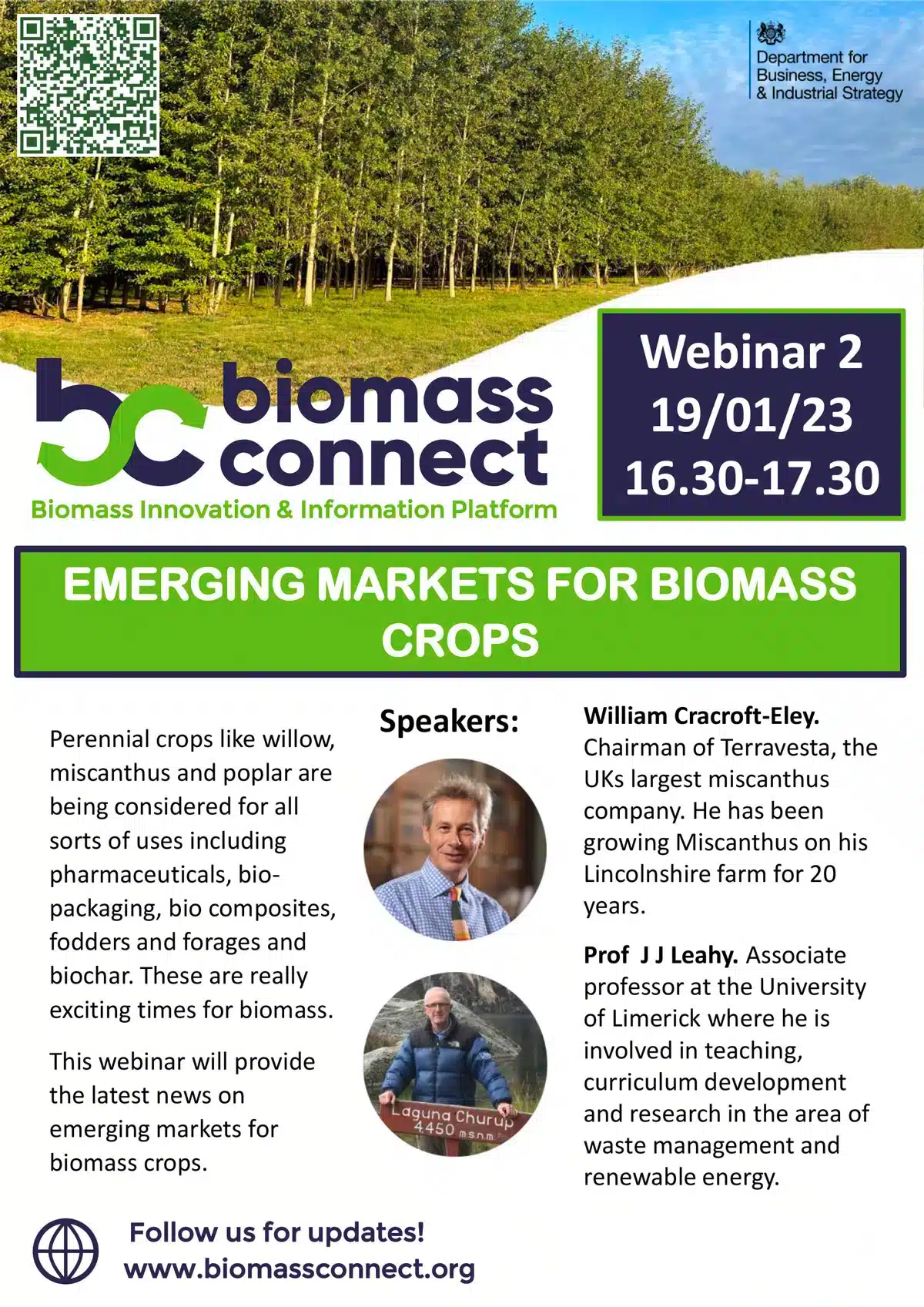
- This event has passed.
Biomass Connect Webinar No. 2
January 19, 2023 @ 4:30 pm - 5:30 pm

Emerging Markets for Biomass Crops
Perennial crops like willow, miscanthus and poplar were once simply termed energy crops. This is no longer the case. The versatility, quick growth and high yields means that these crops are now being considered for all sorts of other uses including pharmaceuticals, bio-packaging, bio-composites, fodders and forages and biochar. R&D efforts are also pushing the potential for cascading several uses for different components of the same crop – the so-called biorefinery approach. These are really exciting times for biomass. This webinar will provide the latest news on emerging markets for biomass crops.
Once registered, use the button below to join on the day.
Speakers:
William Cracroft-Eley – Terravesta
William Cracroft-Eley is the Chairman of Terravesta, the UKs largest miscanthus company. He has been growing Miscanthus on his Lincolnshire farm for 20 years. The company is involved in all aspects of cultivation, management, harvesting, processing and marketing of Miscanthus. Terravesta are currently engaged in the BFI-funded Omenz project which stands for ‘Optimising Miscanthus Establishment through improved mechanisation and data capture to meet Net Zero targets’.
OMENZ will deliver improvements on the entire Miscanthus establishment process, including approaches to producing planting material, field preparation, innovative agri-tech, new planting techniques, and cutting-edge technologies to monitor establishment in the field.
Prof. J J Leahy – University of Limerick
Prof J J Leahy is currently an associate professor in the Dept of Chemical Sciences at the University of Limerick where he is involved in teaching, curriculum development and research in the area of waste management and renewable energy. He currently heads a research group consisting of chemists and chemical engineers that is focused on chemical technologies for biofuels and biorefining from wastes.
Prof Leahy currently is leading the BioWILL project, an Interreg NWE funded project focusing on Integrated “Zero Waste” Biorefinery utilising all fractions of Willow feedstock for the production of high value salicylates from willow bark for medical applications, safe, food quality packaging material to replace fossil derived plastics, a feedstock in an innovative bio-energy anaerobic digestion system producing biogas and natural fertilisers.

